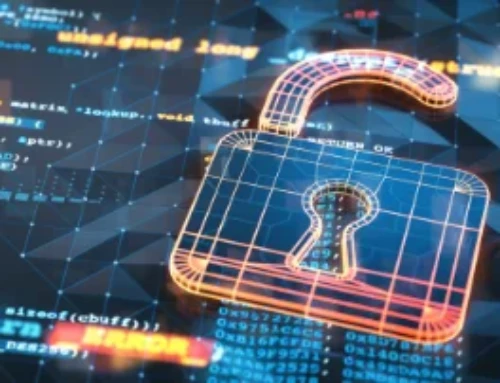What is cybersecurity compliance and why is it crucial for businesses?
Cybersecurity incidents have become so common that they’re a daily concern for every business owner. With the average cost of a data breach now standing at $4.35 million, it’s clear that cybersecurity is a business-critical issue.
In fact, many industries and regulatory bodies today require organizations to follow specific cybersecurity compliance frameworks.
What is cybersecurity compliance?
Compliance is the process of meeting regulatory standards to mitigate legal liabilities and risks. Within the context of cybersecurity, compliance may involve implementing technologies and policies to protect data privacy and the integrity of digital assets.
Organizations may be subjected to particular compliance frameworks based on their industry, geographical location, and the type of data they process. For example, the Payment Card Industry Data Security Standard (PCI DSS) is a set of rules that must be followed by businesses that process, transmit, or store credit card data. Meanwhile, companies that process the data of European Union citizens must comply with the General Data Protection Regulation (GDPR).
Other compliance standards include:
- The Health Insurance Portability and Accountability Act (HIPAA)
- National Institute of Standards and Technology Cybersecurity Framework (NIST CSF)
- Sarbanes-Oxley (SOX) Act
- ISO 27001 International Information Security Standard
Why is cybersecurity compliance crucial?
Meeting cybersecurity compliance obligations may seem like a hassle, but it’s vital for a number of reasons:
1. Strengthen the company’s cybersecurity posture
Different compliance standards share one common goal: reduce cybersecurity risk. Most compliance standards make it mandatory for businesses to implement best-in-class cybersecurity measures like firewalls, intrusion prevention systems, and access control mechanisms. Companies are also generally required to conduct regular risk assessments and policy updates to mitigate any vulnerabilities that cybercriminals may exploit. By adhering to these requirements, businesses will naturally strengthen their cybersecurity posture against various threats.
2. Safeguard sensitive data
Organizations process and store large amounts of sensitive data, including customer information, financial records, and trade secrets. If cybercriminals get ahold of this data, they may use it to commit identity theft and financial fraud. Being involved in such incidents could cause your business to lose customer trust and, in turn, profits.
Cybersecurity compliance standards help protect sensitive data by advocating for strong data management policies and controls. For instance, HIPAA requires covered entities to set up role-based access controls and encrypt electronic protected health information so that the privacy and integrity of patient records remain intact. Many compliance standards also have strict data backup and disaster recovery requirements to ensure that sensitive data can be quickly recovered in the event of a system failure or data loss.
3. Avoid expensive penalties and lawsuits
Failing to comply with cybersecurity regulations can result in heavy fines and class action lawsuits. For instance, noncompliance with PCI DSS regulations can cost companies between $5,000 and $100,000 per month in fines. These steep figures don’t include compensatory damages, identity theft insurance, and service fee reimbursements for customers whose data was compromised. Clients and affiliated business partners may also file million-dollar lawsuits against the company for failing to uphold their cybersecurity obligations.
Although large enterprises have the budget to cover all these expenses, small- and medium-sized businesses may not be so fortunate. One major data breach resulting from negligent practices and compliance violations can cripple the average business.
| Related reading: Find out the consequences of violating PCI DSS regulations |
4. Protect the company’s reputation
A company’s reputation can be a key differentiator in today’s competitive marketplace. After all, if the organization is generally well-regarded, customers and partners will be more likely to do business with them.
However, anything that can tarnish the company’s reputation can easily offset any competitive advantages. A data breach is a perfect example of an event that can have a negative impact on the company’s reputation. If data was compromised due to a company’s failure to comply with cybersecurity regulations, customers will likely lose confidence in that company’s ability to protect their information and take their business elsewhere. Business partners may also distance themselves from the company, as they don’t want to be associated with an organization that failed to protect its clients’ data.
Staying compliant and getting the right certifications demonstrates that the company is serious about cybersecurity and protecting sensitive information. This, in turn, assures customers and partners that their data is safe. Further dedication to data privacy may also set the company apart from others in the industry, which can lead to more business opportunities.
How can businesses achieve cybersecurity compliance?
Various regulatory frameworks have different stipulations and requirements for cybersecurity compliance. However, there are some general cybersecurity best practices practices that businesses should follow to ensure compliance:
1. Conduct regular cybersecurity audits
A cybersecurity audit involves assessing the company’s risk exposure and compliance with the relevant regulations. Third-party consultants will often conduct these audits, so they can give an impartial and objective assessment of the organization’s current cybersecurity posture. They may assess current security controls, evaluate data management policies, test incident response plans, and identify weaknesses in the system. They will then provide a report with their findings and professional recommendations on how companies can meet their compliance obligations.
2. Implement advanced cybersecurity measures
Installing a multilayered security system consisting of next-generation firewalls, advanced threat prevention systems, anti-malware software, data encryption, and user activity monitoring can significantly mitigate data and privacy breaches.
Companies should also set tight restrictions on who or what can access sensitive data. More specifically, they should enable multifactor authentication for user accounts and set role-based access controls so that employees only have access to the data necessary for their job.
3. Back up data
It’s imperative for businesses to have a data backup plan in case of system failure or data loss. Ideally, data should be backed up regularly in off-site servers to ensure that it’s always available in the event of an emergency. Cloud backups are a great solution, as they’re located in a remote location and typically more affordable and easier to manage than on-premises backups.
4. Reinforce security policies with training
Having strong security policies is meaningless unless employees can enforce the policies through a thorough understanding of cybersecurity best practices. That’s why companies should teach proper data handling practices, including disclosures, retention, and destruction policies.
Employees should also be keenly aware of the security risks they may inadvertently create, such as clicking on phishing scams and setting easy-to-guess passwords. To combat these problems, companies should conduct quarterly cybersecurity seminars and threat simulations so that protecting company data becomes second nature to employees.
5. Stay up-to-date with regulatory changes
Certain compliance standards may add or adjust requirements when new cybersecurity threats emerge. As such, businesses need to regularly check for regulatory updates and make the necessary changes to their cybersecurity practices. Top managed IT services providers can oversee this entire process, so companies can have peace of mind knowing that their cybersecurity practices are always compliant.
At Dynamic Solutions Group, we can help your business adhere to any required compliance standard. From audits to cybersecurity technologies, we ‘ll make sure that your organization has the tools and resources it needs to protect its data. Contact us today to learn more about our cybersecurity compliance services.






